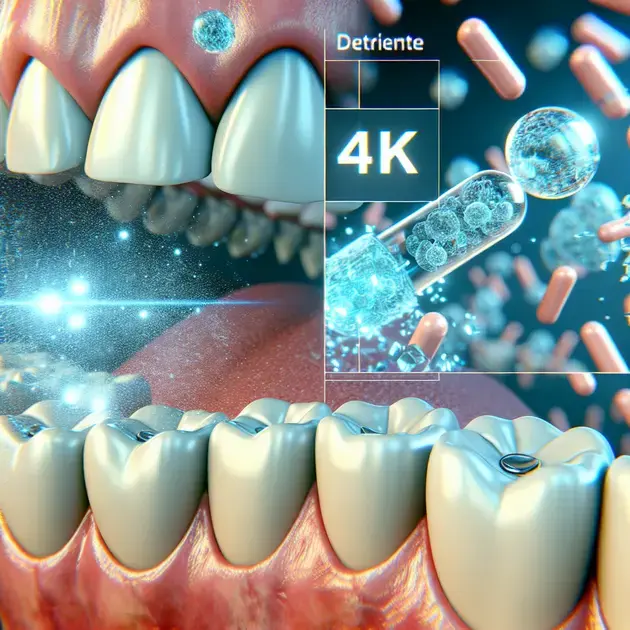When it comes to tackling periodontitis, finding the right medication is crucial. In this comprehensive guide, we will explore the various types of periodontitis medication available, their benefits, and how they can help in the treatment of this common dental condition.
From antibiotics to antiseptics and beyond, staying informed about the latest advancements in periodontitis medication is key to managing this condition effectively. Join us as we dive into the world of periodontitis medication and discover the best options for your oral health needs.

Types of Periodontitis Medication to Consider
When it comes to treating periodontitis, there are several types of medication that can be considered by patients and dental professionals. These medications are aimed at reducing inflammation, fighting bacterial infections, and promoting healing in the gums and surrounding tissues.
One common type of medication used for periodontitis is antimicrobial mouth rinses. These rinses contain ingredients that target and kill harmful bacteria in the mouth, helping to control infection and reduce inflammation. Examples of antimicrobial mouth rinses include chlorhexidine and essential oils such as tea tree oil.
Another type of medication that may be recommended is antibiotics, either in pill form or as a topical gel that can be applied directly to the affected areas. Antibiotics are used to help control bacterial growth and reduce the severity of the infection. Common antibiotics for periodontitis include doxycycline and minocycline.
In some cases, a dentist or periodontist may prescribe an antimicrobial chip or gel that is placed in the pockets between the teeth and gums. These treatments deliver medication directly to the site of infection, providing targeted therapy and promoting healing.
It’s important for patients to discuss the options with their dental professional to determine the most effective and appropriate medication for their specific case of periodontitis.
Understanding the Benefits of Periodontitis Medication
Periodontitis medication offers a range of benefits for patients suffering from gum disease. One of the main advantages of medication is its ability to target the source of the infection and reduce inflammation in the gums. By controlling bacterial growth and promoting healing, medication can help slow down the progression of periodontitis and prevent further damage to the teeth and supporting tissues.
Additionally, certain medications can help manage symptoms such as bleeding gums, bad breath, and gum sensitivity, improving the overall oral health and comfort of the patient. By following the prescribed medication regimen, patients can experience a reduction in pain and discomfort associated with periodontitis.
Another key benefit of periodontitis medication is its role in preventing the recurrence of gum disease. By using medication as part of a comprehensive treatment plan that includes regular dental visits and proper oral hygiene practices, patients can maintain the health of their gums and prevent future flare-ups of periodontitis.
It’s essential for patients to adhere to the medication schedule prescribed by their dental professional and to report any side effects or concerns during the treatment process. With the right medication and proper care, patients can experience improved gum health and overall well-being.
Exploring the Latest Advancements in Periodontitis Medication
Advancements in periodontitis medication continue to evolve, with researchers and pharmaceutical companies developing innovative solutions to enhance treatment outcomes for patients with gum disease. One of the latest advancements in medication is the use of targeted drug delivery systems, such as microspheres or nanoparticles, to deliver medication directly to the affected areas in the gums.
These advanced delivery systems help increase the efficacy of the medication while minimizing potential side effects on other parts of the body. By targeting the medication to the specific site of infection, patients can experience faster healing and better results in managing their periodontitis.
Another area of advancement is the development of personalized medication regimens based on genetic factors and individual treatment needs. Through genetic testing and analysis, dental professionals can tailor medication plans to each patient’s unique biological characteristics, optimizing the effectiveness of the treatment and improving long-term outcomes.
It’s crucial for patients to stay informed about the latest advancements in periodontitis medication and to consult with their dental provider about the most current treatment options available. By staying proactive and seeking out cutting-edge solutions, patients can experience improved outcomes in managing and treating their periodontitis effectively.

Types of Periodontitis Medication to Consider
When it comes to treating periodontitis, there are several medications that healthcare providers may consider depending on the severity of the condition. One common type of medication is antibiotics, which can be prescribed to help fight off the bacterial infection that causes periodontitis. These antibiotics can come in the form of pills, mouth rinses, or gels and are often used in combination with other treatments like scaling and root planing.
Another type of medication that may be used is antimicrobial mouth rinses. These rinses can help reduce the amount of bacteria in the mouth, which can be beneficial for those with periodontitis. Chlorhexidine is a common ingredient found in these rinses and is known for its antimicrobial properties.
In some cases, a doctor may prescribe an antiseptic chip that is placed directly into the pockets of the gums. These chips slowly release medication over time to help reduce bacteria and inflammation in the affected areas. This localized treatment can be effective in targeting specific areas of concern.
For more severe cases of periodontitis, a healthcare provider may recommend systemic antibiotics. These are taken orally and are used to address deep infections that may not respond to other forms of treatment. It’s essential to follow the prescribed dosage and duration when taking systemic antibiotics to avoid antibiotic resistance.
Overall, the choice of periodontitis medication will depend on the individual’s specific condition and needs. It’s crucial to consult with a healthcare provider to determine the most appropriate treatment plan for effectively managing periodontitis.
Understanding the Benefits of Periodontitis Medication
Periodontitis medication plays a crucial role in managing and treating gum disease effectively. By targeting the root cause of the infection, these medications can help reduce inflammation, control bacterial growth, and promote healing in the gums and surrounding tissues.
One of the significant benefits of periodontitis medication is its ability to combat the bacterial infection responsible for gum disease. Antibiotics and antimicrobial agents can target and eliminate harmful bacteria, preventing further progression of the disease and potential complications.
Medications for periodontitis also help in reducing gum inflammation, which is a common symptom of the condition. By decreasing inflammation, patients may experience less pain, swelling, and redness in the gums, improving their overall oral health and comfort.
Furthermore, periodontitis medication can aid in promoting tissue regeneration and repair. By supporting the healing process, these medications can help restore the health of the gums and prevent the loss of teeth due to advanced gum disease.
Overall, the benefits of periodontitis medication go beyond symptom management, as they address the underlying cause of the disease and work towards restoring optimal oral health. When used as part of a comprehensive treatment plan, these medications can contribute to long-term gum disease management and improved oral well-being.
Exploring the Latest Advancements in Periodontitis Medication
Advancements in periodontitis medication continue to revolutionize the way gum disease is treated and managed. Researchers and healthcare providers are constantly exploring new technologies and formulations to enhance the effectiveness of existing treatments and develop innovative solutions for periodontal care.
One exciting advancement in periodontitis medication is the development of targeted drug delivery systems. These systems allow for more precise and efficient administration of medication directly to the affected areas, improving treatment outcomes and reducing side effects associated with systemic medications.
Nanotechnology is another area of research that shows promise in enhancing periodontitis medication. By utilizing nanoparticles, researchers can create drug delivery platforms that improve the bioavailability and efficacy of medications, leading to better results in combating gum disease.
Furthermore, personalized medicine approaches are being explored to tailor periodontitis medication to individual patient needs. By considering factors like genetic predisposition and microbial profile, healthcare providers can optimize treatment plans and improve the overall success of gum disease therapy.
Overall, the latest advancements in periodontitis medication hold great potential for transforming the landscape of gum disease treatment. By staying informed about these developments, healthcare providers can offer cutting-edge solutions to patients and improve outcomes in managing periodontitis effectively.
Conclusion
In conclusion, when it comes to managing periodontitis, healthcare providers have a range of medications to consider based on the severity of the condition. Antibiotics, such as pills, mouth rinses, or gels, play a significant role in combating bacterial infections, often used alongside treatments like scaling and root planing. Antimicrobial mouth rinses, containing ingredients like Chlorhexidine, help reduce bacteria in the mouth, benefiting individuals with periodontitis.
Moreover, medications like antiseptic chips placed in gum pockets and systemic antibiotics are recommended for severe cases, targeting deep infections that may not respond to other treatments. Consulting with a healthcare provider is crucial to determine the most suitable medication for effective periodontitis management tailored to the individual’s needs.
Furthermore, the benefits of these medications extend beyond symptom management. They target the root cause of gum disease, combat bacterial infections, reduce inflammation, promote tissue regeneration, and aid in the healing process. By restoring optimal oral health, these medications contribute to long-term gum disease management and overall improved well-being.



